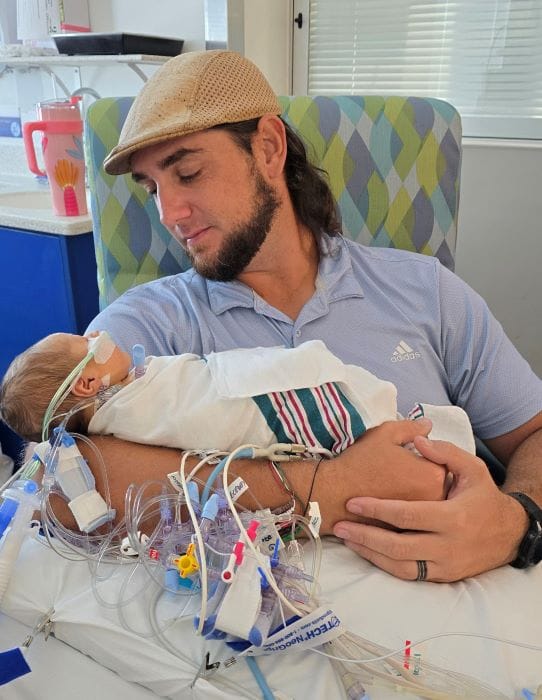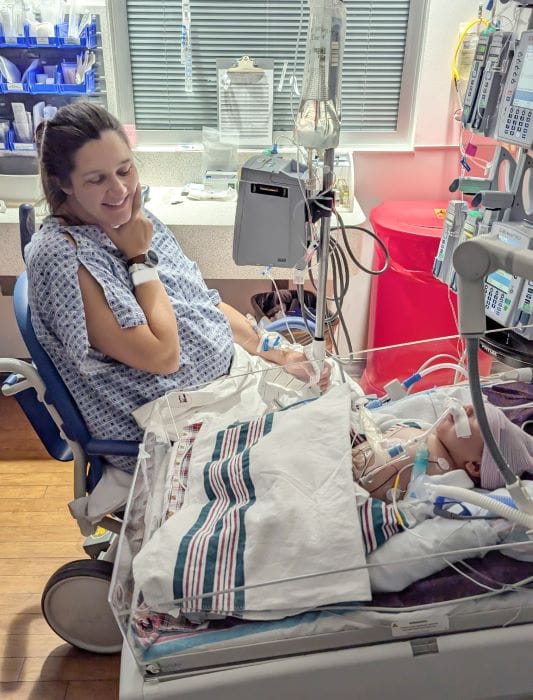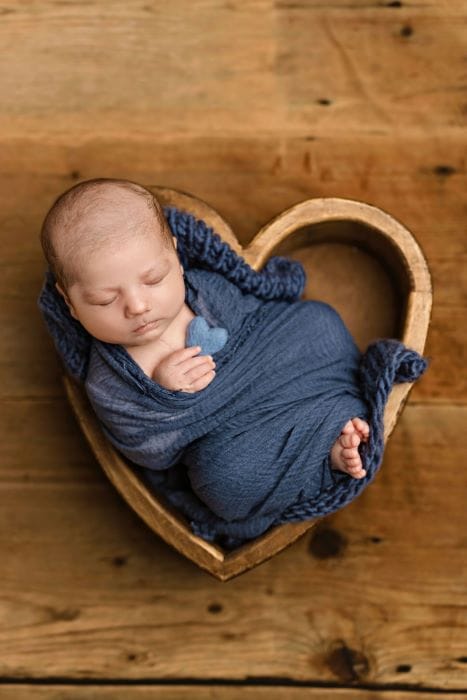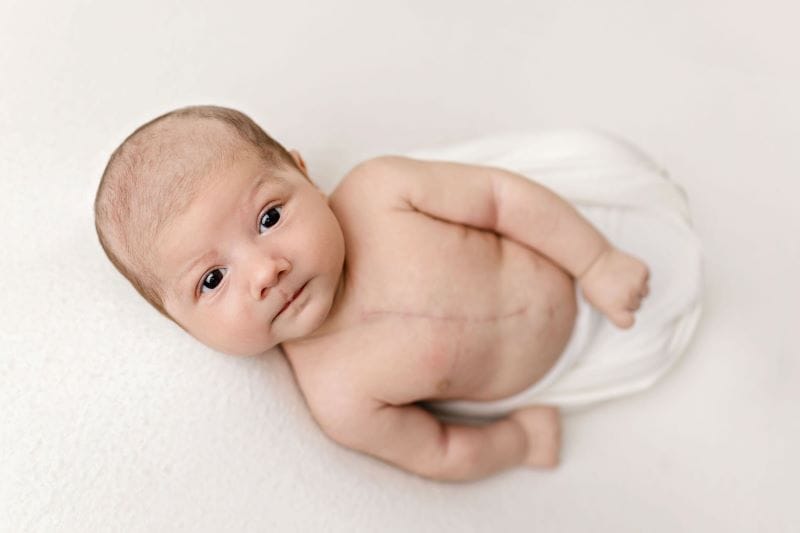Heartfelt Gratitude: How BayCare Physicians Perform Daily Miracles for their Tiniest Patients
It was astonishing. And not in a good way.
Marli Budricks’ pregnancy had been progressing perfectly normally. Her daughter, Norah, 3, had been an uncomplicated delivery. And neither Marli nor her husband, Stefan, had a family history of heart conditions. Yet here they were at their 20-week scan, being told that their unborn baby had a potentially serious heart defect.
The shock was followed by intense worry. What would treatment look like? How would he handle recovery?
Fortunately for the Budricks family, their baby boy’s heart was in the safest possible hands: those of Dr. J. Blaine John, BayCare Kids pediatric and fetal cardiologist.
Dr. John quickly diagnosed the condition: transposition of the great arteries. In a normally functioning heart, an aorta carries red blood with oxygen in it from the heart to the rest of the body, while the pulmonary artery carries blue blood from the heart to the lungs to collect oxygen.
For baby Adrian, the two arteries were switched. Detecting this critical condition in utero meant that life-saving medications could be started and the baby (and family) prepared for surgery immediately after birth.
“It could not have gone better,” says Marli, speaking through the coos of 2-month-old baby Adrian as he nuzzled for his breakfast. “Meeting with the cardiologists at St. Joseph’s Children’s Hospital was very reassuring because we knew what to expect going in. Knowledge is power, and they made sure to answer all our questions.”
Adrian was wheeled into surgery two days after birth at 7:30 a.m. with Dr. Victor Morell, medical director of the BayCare Kids pediatric cardiovascular surgery program. Marli and Stefan were told to prepare for a six-hour wait, but by noon, the infant was already in recovery.

By the time he was 8 days old, Adrian Budricks was back home with his parents and adoring sister with no post-surgery complications other than having to refrain from tummy time to protect his incision.
“Literally everyone from top to bottom was absolutely incredible – nurses, staff, the whole Pediatric Cardiac ICU,” Marli says. “They are just in a different class.”
While the overall incidence of congenital heart defects is about 1%, heart defects are the most common inherited anomaly, Dr. John explains. Fortunately, many of these cases are not life threatening. Critical heart defects, which are about one in a thousand, are rarer.
“Parents are not only frightened, but they are going to grieve that completely normal baby they thought they would have,” Dr. John says. “A large part of what I do is actually reassurance; reassurance that they did not cause this. Reassurance that fetus inside mom is completely stable, doesn’t even know there is a heart defect going on. Reassurance that with appropriate care, the newborn baby should be completely stable at delivery and have a normal life after a corrective procedure.”
Babies like Adrian are cared for at St. Joseph’s Children’s Hospital in a dedicated unit by a team comprised of maternal fetal medicine experts, neonatologists, pediatric cardiac intensivists and congenital heart surgeons. A nurse navigator works with families like the Budrickses to help make appointments, answer medical questions and support them in any other way.

“BayCare and St. Joseph’s Children’s deliver phenomenal support not only for parents, but for the entire family and team of carers,” Dr. John says. “We focus on care of whole family throughout the entire journey.”
Fetal cardiology didn’t even exist as a field 25-30 years ago, but advances in technology now mean that many congenital heart conditions can be treated by non-surgical procedures such as heart catheterization (which can close a hole in the heart without surgery) or the implantation of valves without surgery. Many of these are “one-and-done” procedures, with the baby going home by lunchtime the following day.
However, because St. Joseph’s Children’s Hospital offers lifelong congenital heart care, its physicians get to stay connected with their tiny patients.
Today, when he’s not nursing like a champ, sleeping through the night or dispensing gummy smiles, Adrian makes regular visits from his Lakeland home to BayCare Kids Cardiologist Dr. Jay Patel, who will now oversee his care until adulthood.
Once Adrian nears adulthood, Dr. Patel will seamlessly transition his care to his partners in the Tampa Bay Adult Congenital Heart Center (TBACHC). The TBACHC at St. Joseph’s Hospital is one of only two accredited adult congenital heart centers in the state of Florida.
The continued relationship is one of the perks of the job for Dr. John. “I get to watch these children grow into adults,” he says. “We still stay in contact. First birthday parties, high school graduations, those are things that I would never say no to. We take care of the children from conception throughout adulthood.”

RELATED:
- Safety First: For Baby Safety Month, Check Out These Tips From a BayCare Kids Expert.
- A Bus with a Purpose: BayCare’s Mobile Medical Clinic celebrates 20 years of serving area children and families
- Little Hands, Big Hearts: Ways to Give Back with Toddlers
*Presented by BayCare | Originally published in the February 2025 issue of Tampa Bay Parenting Magazine.


